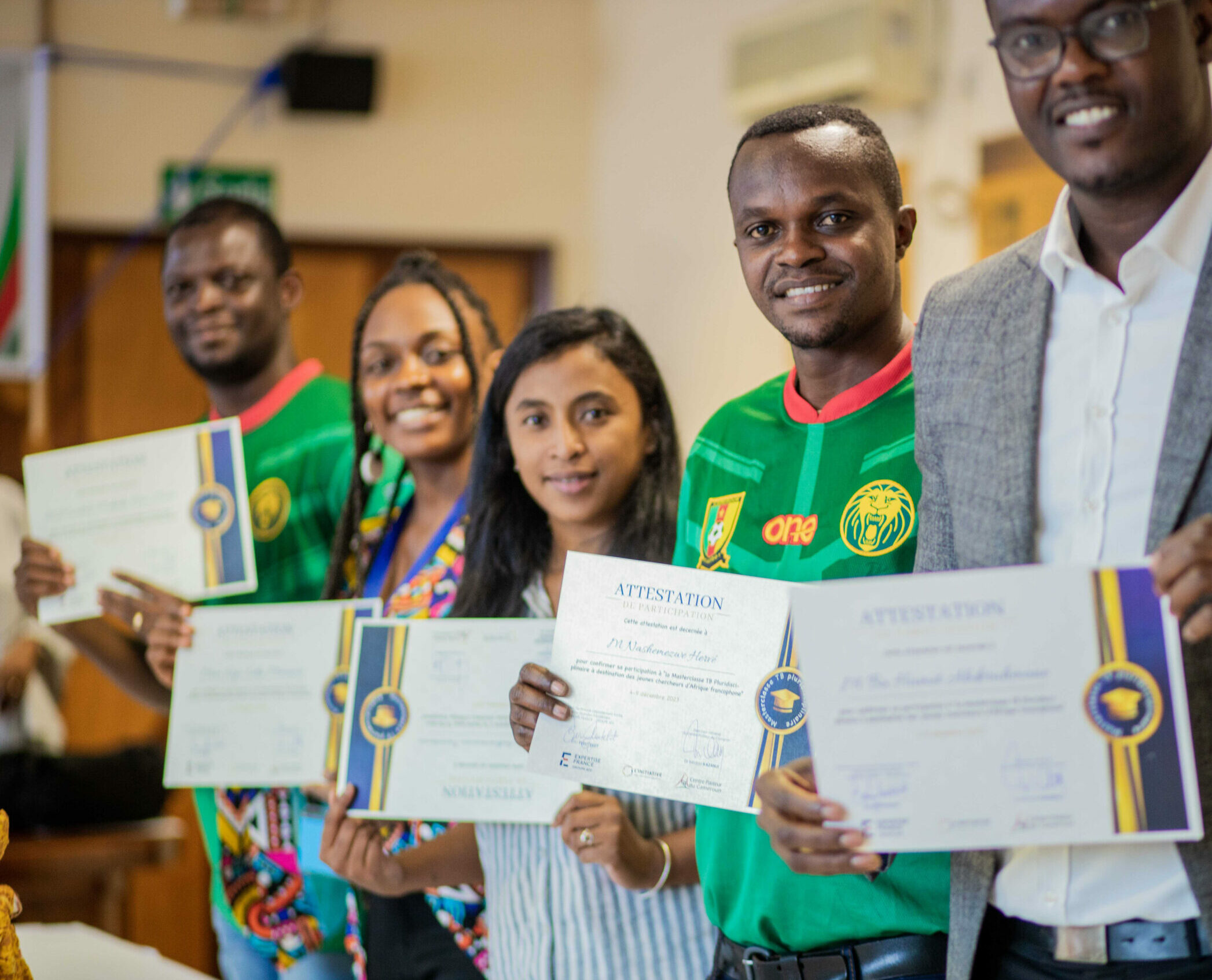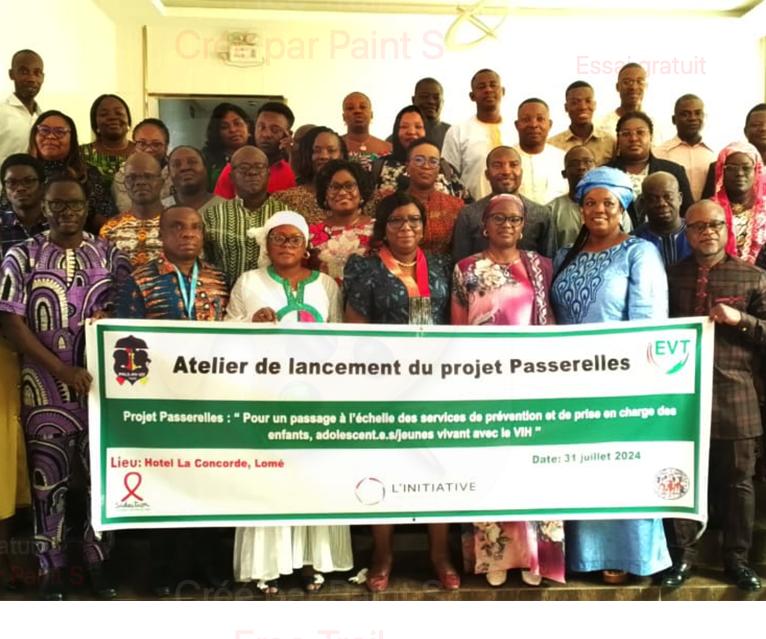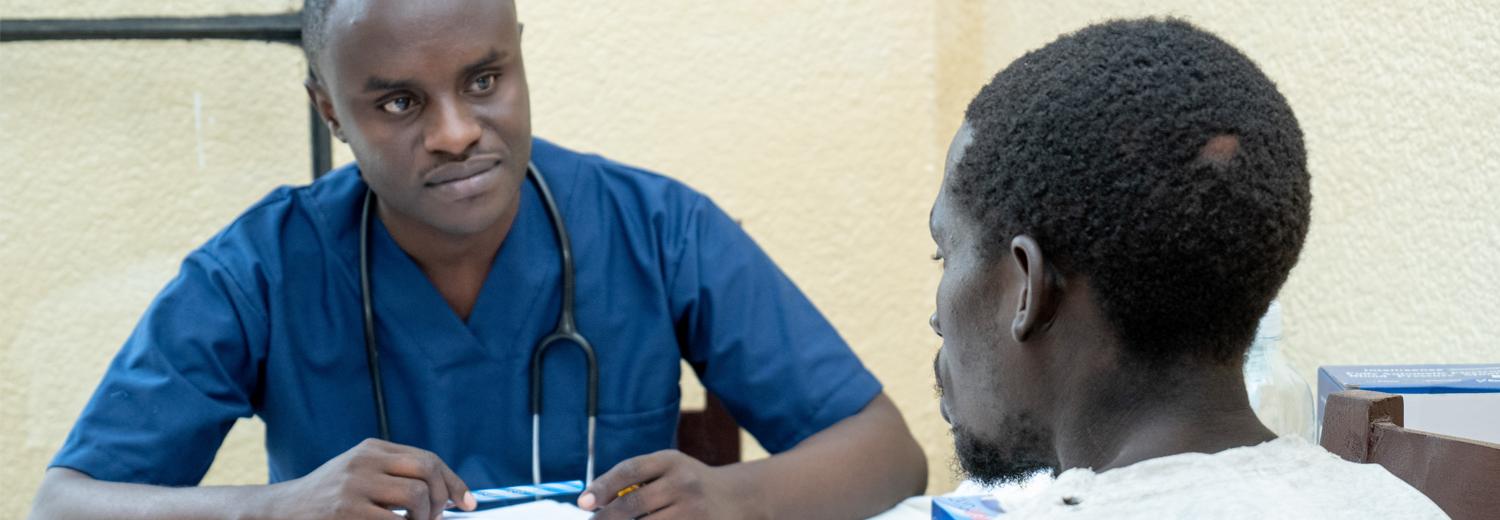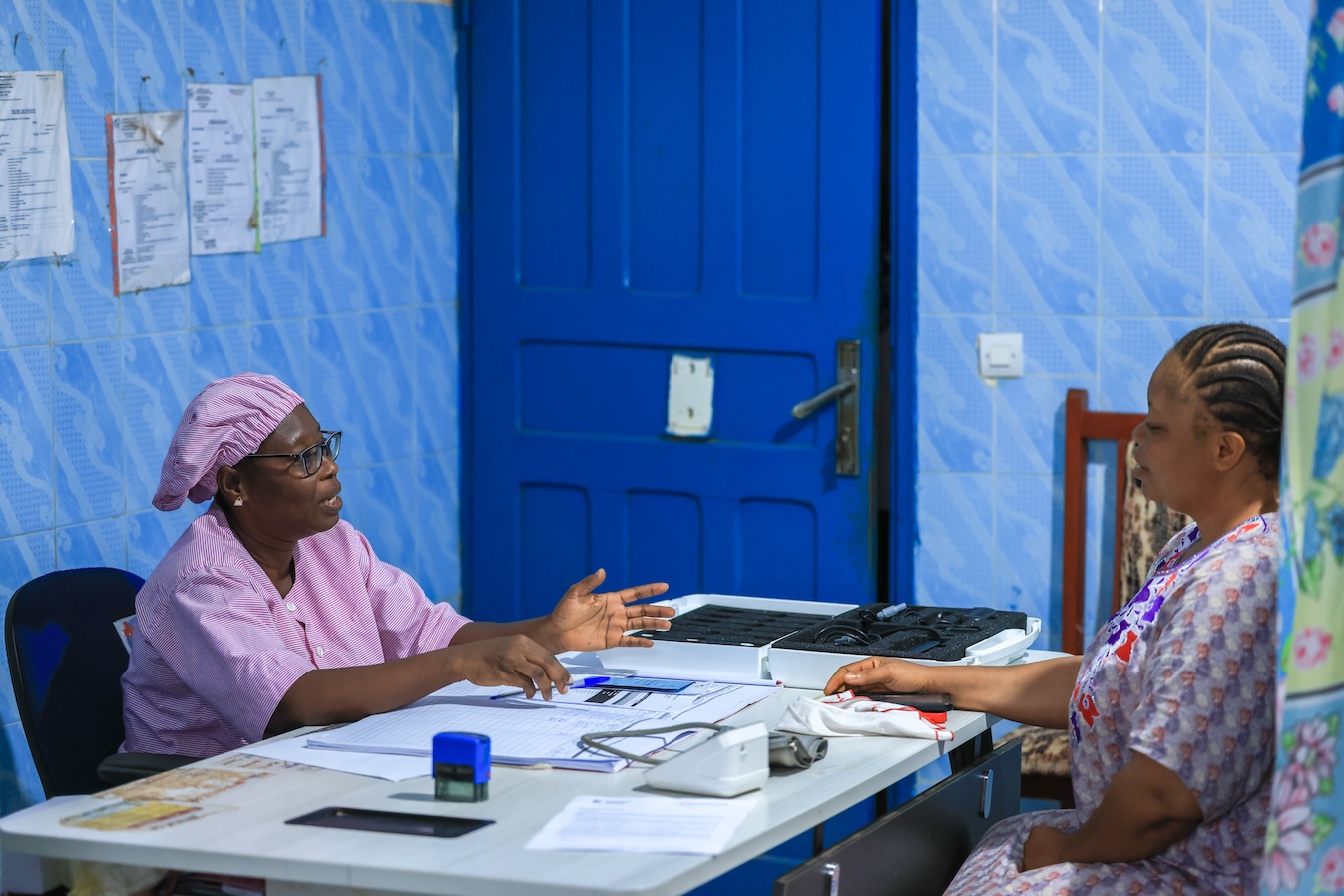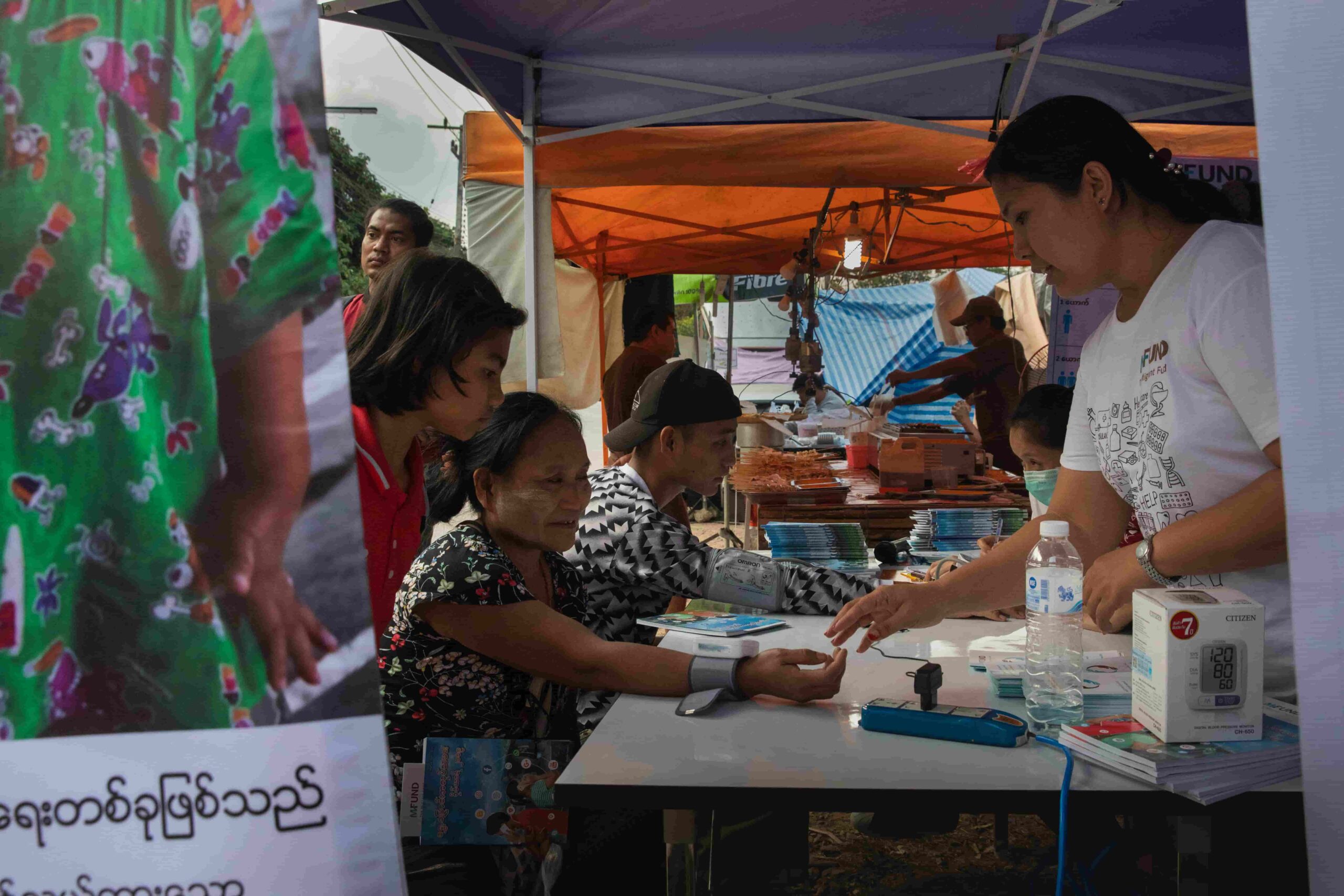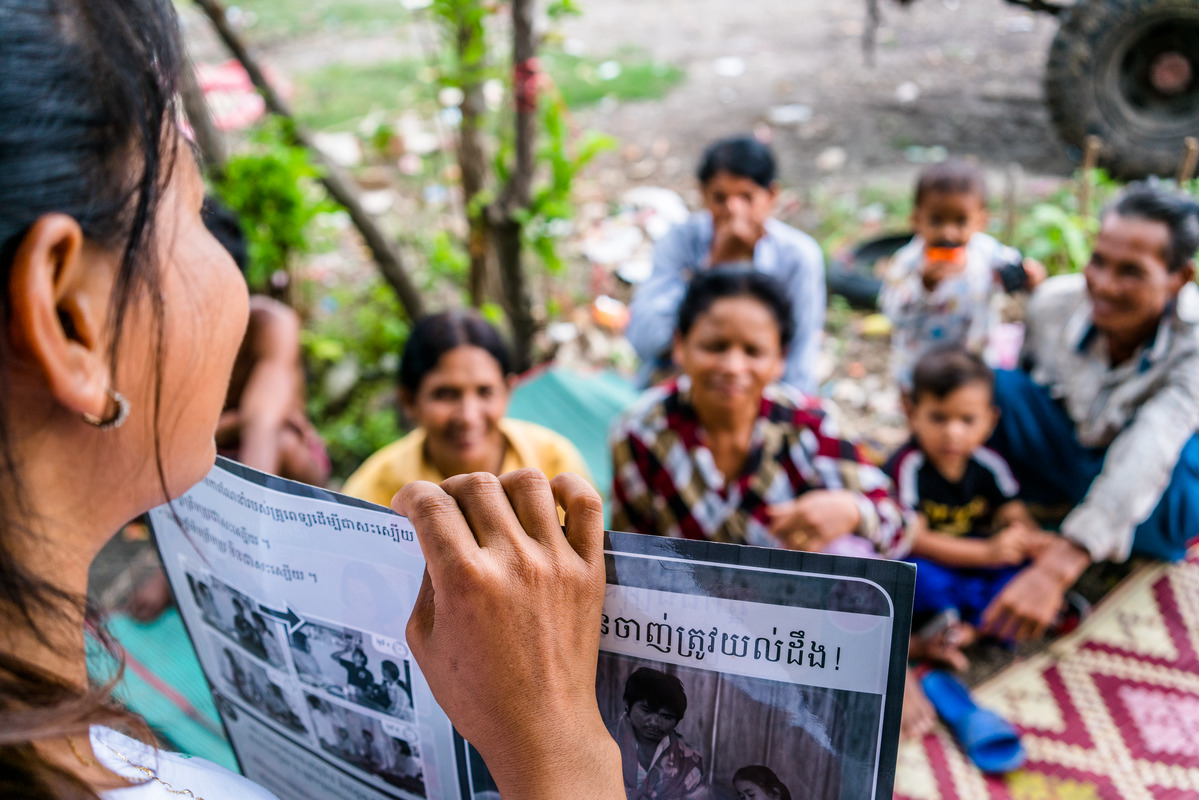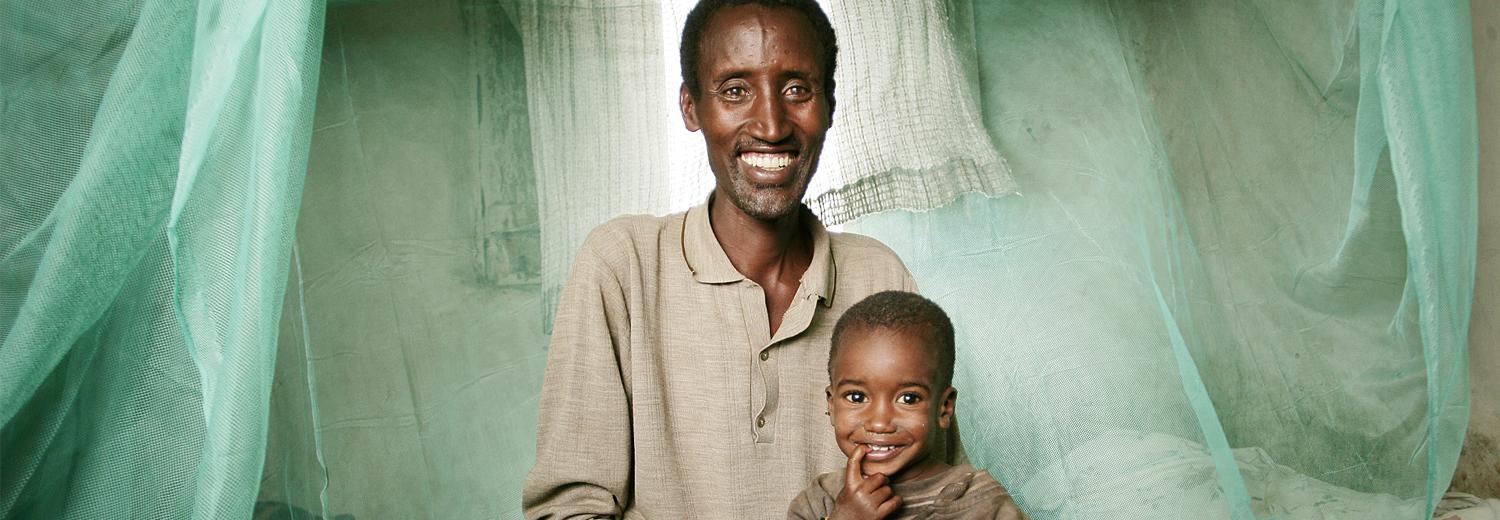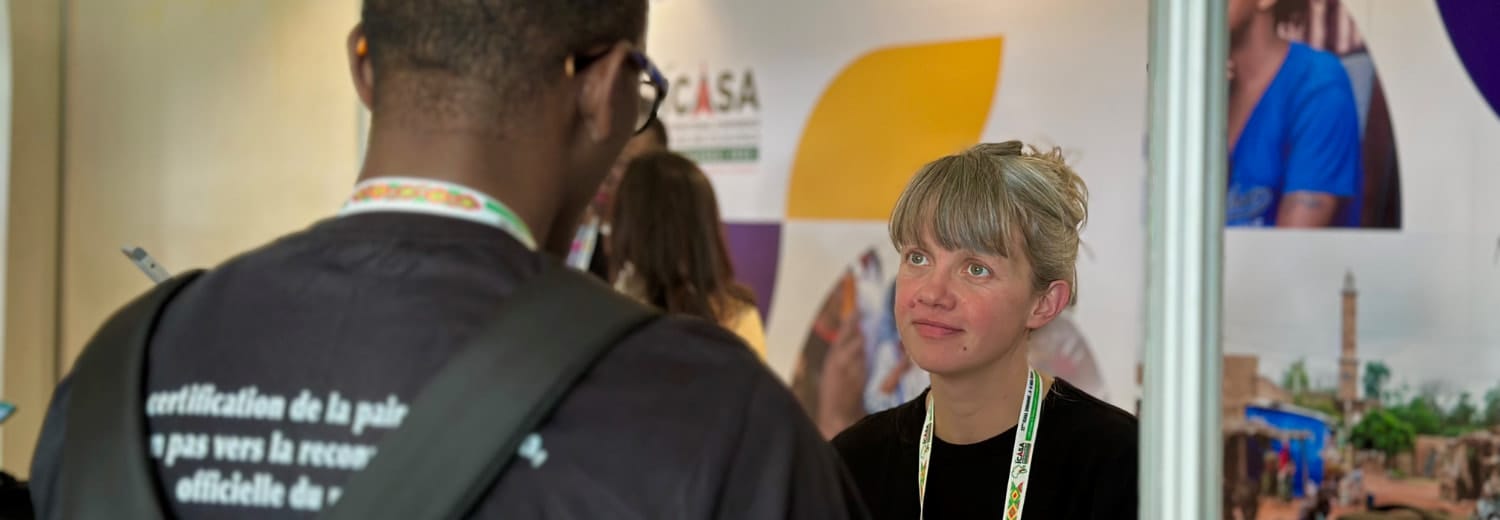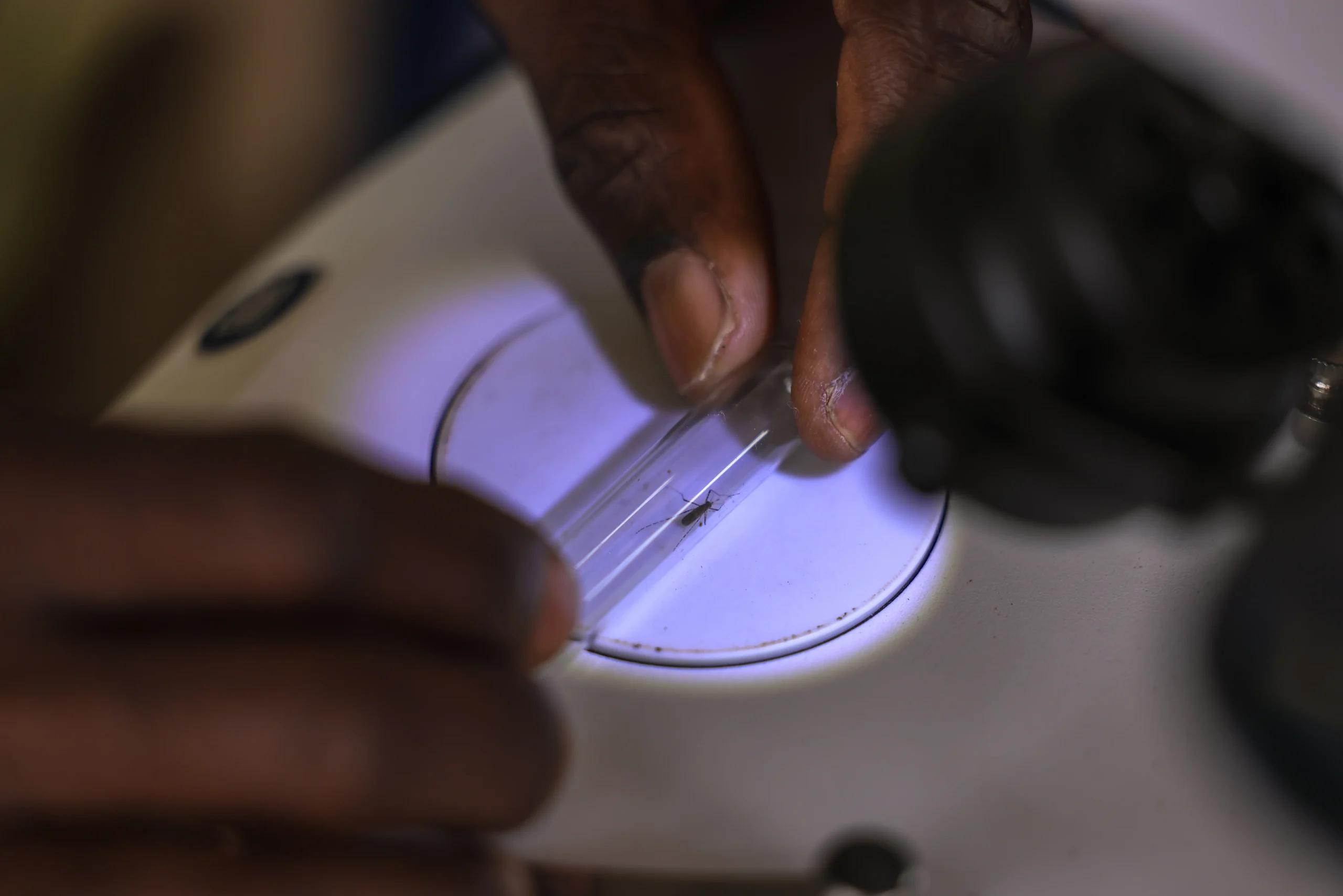“Tubiteho”: Protecting Health and Human Rights of People Who Use Drugs in Rwanda
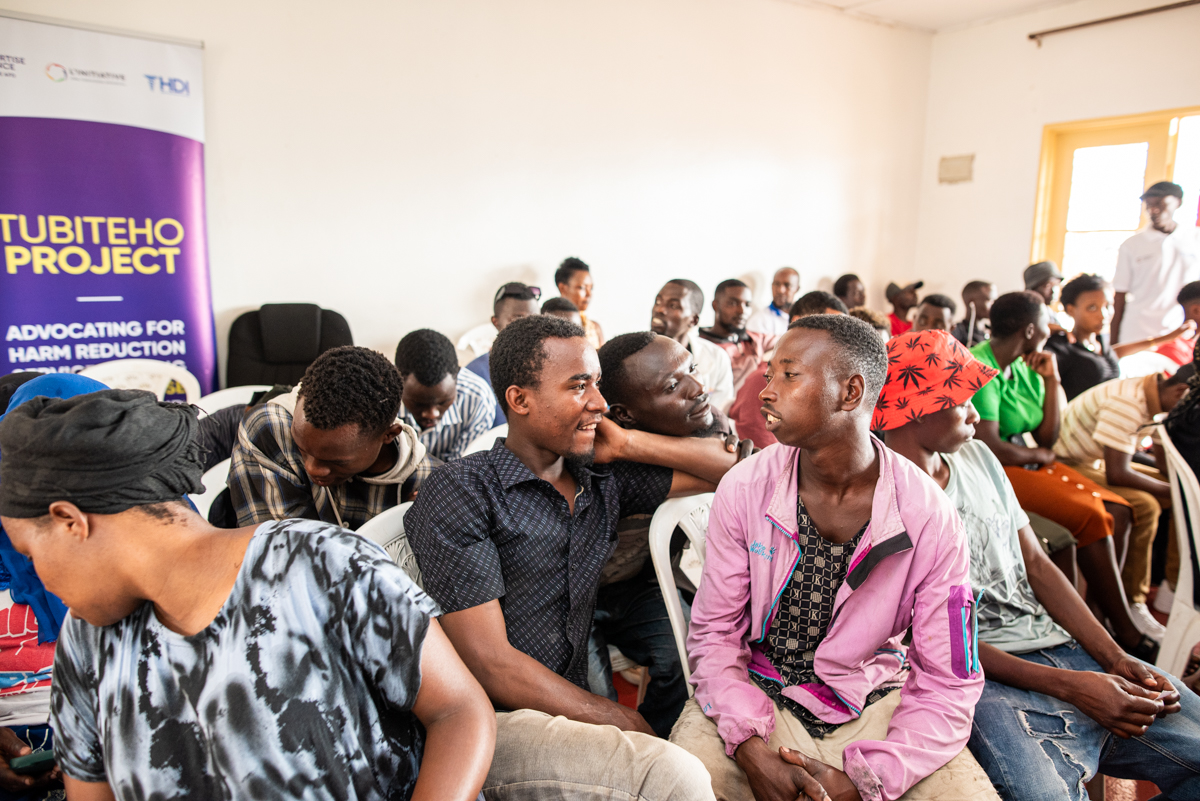
As in many countries, Rwanda prohibits drug use. People who use drugs face prison sentences of many years. They are marginalized with limited access to healthcare and no knowledge of their rights: their risk of being infected by HIV is three to four times higher than in the general population (around 12%). To answer this public health issue, a consortium of organizations launched Tubiteho (“Let’s Take Care of Them”) in October 2023 to promote harm reduction in Rwanda. Supported by L’Initiative, the project is implemented by Health Development Initiative (HDI) with Strive Foundation, IMRO Rwanda, le Rwanda NGO Forum and Médecins du Monde in the districts of Gasabo, Nyarugenge, and Rubavu.
Last December, we visited the project teams. In Nyamirambo, a neighborhood in Kigali, Sulemani, a program officer for key populations at HDI, welcomed us to an HIV information and testing session. Several dozen people had gathered that morning, and over the year, more than 450 people who use drugs have come for psychological support, medical access and legal assistance. One participant confided: “This project allowed me to get tested without being judged. It’s the first time I feel recognized.”
Supporting harm reduction in a country where drug use is criminalized
Tubiteho promotes a public health approach grounded in human rights. The project priority is to enable an environment that allows people who use drugs to reduce risks and improves quality of life. Designed to complement the Global Fund to Fight AIDS, Tuberculosis and Malaria, the project strengthens healthcare capacities, promotes human rights and mental health, and provides tailored services such as HIV, STI and hepatitis testing, psychosocial care, legal support, and awareness on gender-based violence. To expand its reach, Tubiteho also relies on 60 peer educators.
Discover the story of Tubiteho:
Paying specific attention to the LGBTQI+ community and to women who use drugs
Women and girls face compounded marginalization when they use drugs. “It is a double vulnerability compared to their male counterparts” notes Elvis Benimana, Program Manager at HDI. Many are initiated into injection by male partners, inject second-hand (“second on the needle”), share syringes, or engage in sex work—behaviors that heighten risks of HIV, hepatitis C, and gender-based violence. To respond, Tubiteho provides targeted support, informing women of their sexual and reproductive health rights, and partners with health centers already serving key populations. It also trains healthcare professionals to better respond to domestic violence. The aim: reach 30% female participation in services.
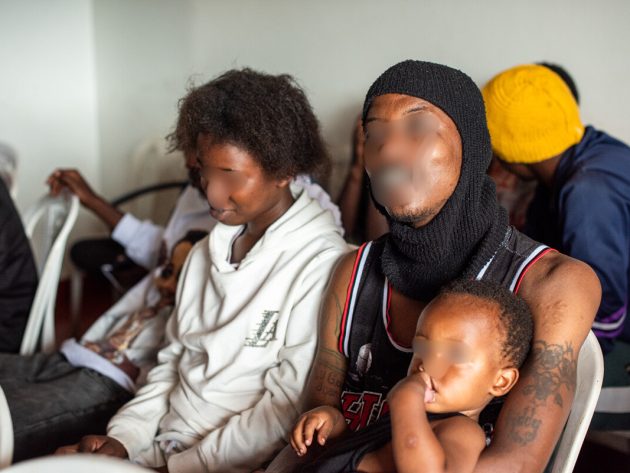
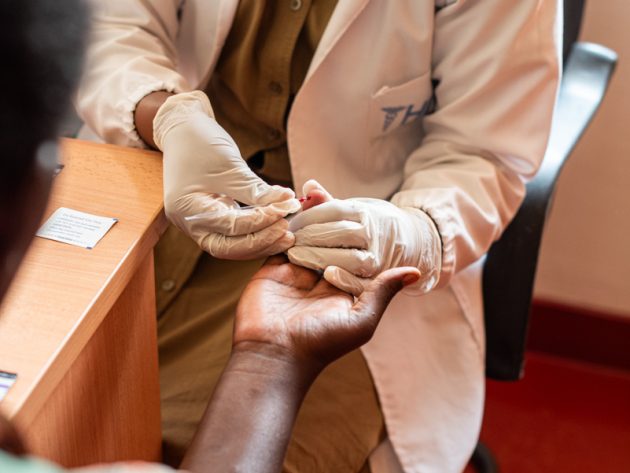
Changing perceptions to change policies
Repressive laws still block evidence-based measures such as syringe distribution or naloxone—even though 91% of people who use drugs in Kigali have shared a syringe and 33% reused one in the past six months. It is one of the main factors in the transmission of viruses, notably HIV and hepatitis C. Arrests and harassment further fuel mistrust and limit healthcare access. To address this, Tubiteho advocates for a national harm reduction approach, raising awareness among law enforcement, media, and local leaders. “Previously, many organizations treated people who use drugs as criminals. Now they are focusing on how best to support them” says Jean Rwikangura, Director of Kigali’s Social and Health Development Unit. So far, 73 security officers, 13 journalists, and 22 leaders have joined awareness sessions.
Tubiteho hopes the effectiveness of harm reduction methods will be reflected in law for more supportive measures towards people who use drugs. “We are looking eventually to push the change of the legal and policy environment” adds Dr. Kagaba, Executive Director of HDI.
In the last quarter of 2025, harm reduction services in Rwanda will be strengthened with the expansion of Opioid Agonist Maintenance Therapy (OAMT), including methadone, in two mental health facilities in Kigali and one in Huye. This service expansion is led by the Rwanda Biomedical Center (RBC), with technical assistance from Médecins du Monde and financing from L’Initiative, building on the methadone maintenance program already piloted at the Icyizere Psychotherapeutic Centre.
